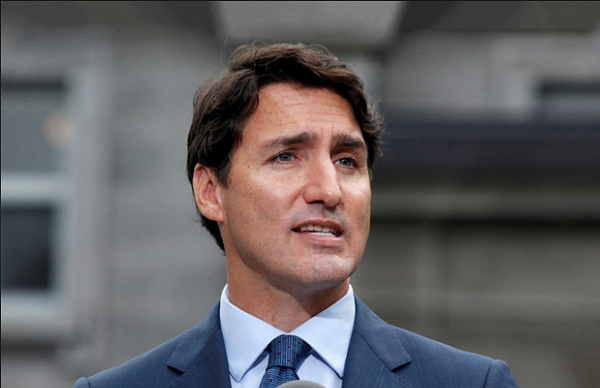U.S. prepares to introduce open banking systems; What is holding Canada back
Last summer, financial technology company Borrowell Inc. launched a new product that allows users to add their rent payments to their credit report. In the midst of a housing affordability crisis, the idea was to give renters the same kind of chance as homeowners to build their credit score.
There’s just been one snag: It’s sort of broken. In order to verify the monthly rent payment has been made, Borrowell has to check a user’s bank account. But the software connection between the fintech and the bank uses a creaky old setup called screen scraping that fails about 40 per cent of the time.
Borrowell chief executive officer Andrew Graham said he is frustrated that this keeps happening – but he does have an idea banking is the term for an updated set of rules that makes it faster and more efficient for financial institutions to exchange information. The idea is that consumers will have more control over their data and it will be easier for them to move between banks and service providers – and significantly lower the barriers of entry into the financial sector for innovative new companies.
It’s part of a global trend reshaping financial services. Britain began to implement open banking in 2017, and Australia followed in 2019. The U.S. Consumer Financial Protection Bureau said it will introduce its own proposed rules by the end of October.
But tech companies worry Canada is falling behind. The federal government first committed to study open banking in the 2018 budget. In subsequent years, Ottawa struck advisory committees and working groups and held consultations with dozens of stakeholders. In the 2021 election, the Liberals promised to have a system in place by January, 2023.
The office of Finance Minister Chrystia Freeland confirmed she received a report this year from the lead bureaucrat on the file, Abraham Tachjian, that lays out how to implement open banking. But the office did not have a timeline on when Ms. Freeland would act.
“The Department of Finance is continuing its work on open banking at this time,” Ms. Freeland’s spokesperson, Katherine Cuplinskas, said in an e-mail.
The federal government has been occupied with other priorities in recent weeks, such as housing policy and changes to the Competition Act. But Nicholas Schiavo, director of federal affairs at the Council of Canadian Innovators, said open banking fits snugly into that policy agenda because it is about opening up competition in the financial sector and making it easier for new entrants to operate.
“I find it frustrating that we talk about a new era of competition, and yet open banking and choice and innovation in the financial services space is nowhere to be found,” Mr. Schiavo said.
One new startup also trying to solve the problem of getting rent payments on credit reports is RentProof. Founder (and former semi-pro race car driver) Toka Murphy said he decided to steer away from screen scraping to verify payments, and instead RentProof works with landlords to either issue receipts or integrate into property management software. However, he said he is hoping he could verify payments through bank accounts in a reliable way once open banking is implemented, since credit firms such as Equifax would prefer it.
Mr. Murphy said he has also been talking to U.S. companies about working with them, and finds them less bogged down with red tape.
“They’re like: This is what you have to do, this is what it takes, this is the process, once you do this, you’re in,” he said. “And most of the fees are way lower.”
The United States has long had a more competitive banking sector, and in recent years new entrants such as cash-sharing app Venmo have changed day-to-day financial transactions. (Venmo is not available in Canada.)
The country is expected to go further when the Consumer Financial Protection Bureau unveils updated regulations by the end of October.
Bureau director Rohit Chopra said in a speech last month that the new U.S. rules will “help people get paid faster, access more attractive rates on deposits and loans, switch more easily, avoid intrusive surveillance, and minimize the consequences of inaccurate credit reporting.”
Mr. Chopra made the speech on the 15th anniversary of the collapse of Lehman Brothers, a pivotal moment in the global financial crisis that ensued. He said he believed making the financial system more dynamic would also make it more resilient.
Ms. Freeland’s office told The Globe they are watching the U.S.’s coming open-banking policy with interest.
But the government has signalled before that it is concerned about moving too fast.
In May, Michael Sabia, who was then the deputy minister of the Finance department, told the Senate banking committee that he recognized techniques like screen scraping were not secure or efficient.
But “the flip side is the resilience, the stability of Canada’s financial system, which is a really bedrock characteristic of how our economic system works,” he said. “In an environment where there’s been a lot of turbulence, whether it’s been in the European market or the North American market … the stability of our institutions is a really important competitive advantage for Canada.”
The Canadian Bankers Association said in a statement that its members support “responsible innovation and competition in Canada’s financial services sector.”
Independent Senator Colin Deacon, who sits on the committee and asked Mr. Sabia about open banking, said Ottawa’s aversion to risk is misplaced. “Yes, we want stable, good, solid big banks,” he said. “But we need them to innovate and compete.”
This article was reported by The Globe and Mail
















